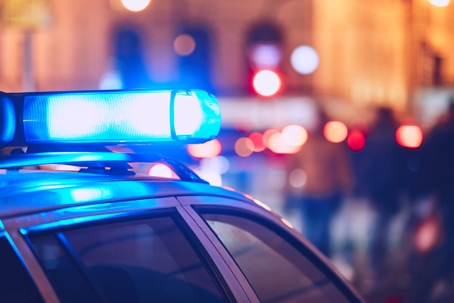Car accidents are chaotic and stressful events that can leave drivers shaken and unsure of what steps to take next. In the aftermath of a collision, many drivers may instinctively opt to exchange information with the other party involved and move on without involving law enforcement. However, calling law enforcement after an accident is not only advisable but also crucial for several reasons. In this article, we'll explore why drivers should prioritize contacting law enforcement after an accident rather than solely relying on exchanging information with the other driver.
1. Ensuring Safety:
One of the primary reasons for calling law enforcement after an accident is to ensure the safety of all parties involved. Law enforcement officers are trained to manage traffic incidents and can help secure the scene, redirect traffic, and prevent further accidents from occurring. By calling law enforcement, you're taking proactive steps to protect yourself, other drivers, and any pedestrians or bystanders who may be in the vicinity of the accident.
2. Documenting the Scene:
Law enforcement officers play a crucial role in documenting the scene of the accident. They will conduct an investigation, gather evidence, and create an official accident report detailing the circumstances of the collision. This report can be invaluable later on when dealing with insurance claims or legal proceedings. Without a police report, it may be challenging to accurately reconstruct the events of the accident and determine liability.
3. Calm Tensions:
The presence of law enforcement can help defuse tensions and prevent disagreements from escalating into confrontations.
4. Obtaining Necessary Information:
While exchanging information with the other driver is important, law enforcement officers can also gather additional information that may be critical for your insurance claim or legal case. They can collect witness statements, take photographs of the scene, and gather contact information from any witnesses present. This comprehensive documentation can strengthen your position when seeking compensation for damages or injuries.
5. Compliance with Legal Requirements:
In many jurisdictions, including Florida, drivers are legally required to report accidents to law enforcement if certain criteria are met. For example, Florida law mandates that drivers must report accidents involving injuries, fatalities, or property damage exceeding $500 to law enforcement immediately. Failure to comply with these reporting requirements could result in legal penalties or complications with insurance claims. Florida Statute Section 316.065 states that The driver of a vehicle involved in a crash resulting in injury to or death of any persons or damage to any vehicle or other property in an apparent amount of at least $500 shall immediately by the quickest means of communication give notice of the crash to the local police department, if such crash occurs within a municipality; otherwise, to the office of the county sheriff or the nearest office or station of the Florida Highway Patrol. A violation of this subsection is a noncriminal traffic infraction, punishable as a nonmoving violation as provided in chapter 318
While it may be tempting to simply exchange information with the other driver and move on after an accident, calling law enforcement is a critical step that should not be overlooked. By involving law enforcement, you're prioritizing safety, documenting the scene, mediating disputes, obtaining necessary information, and complying with legal requirements. Ultimately, contacting law enforcement after an accident can help protect your rights, streamline the claims process, and ensure a fair resolution for all parties involved.

